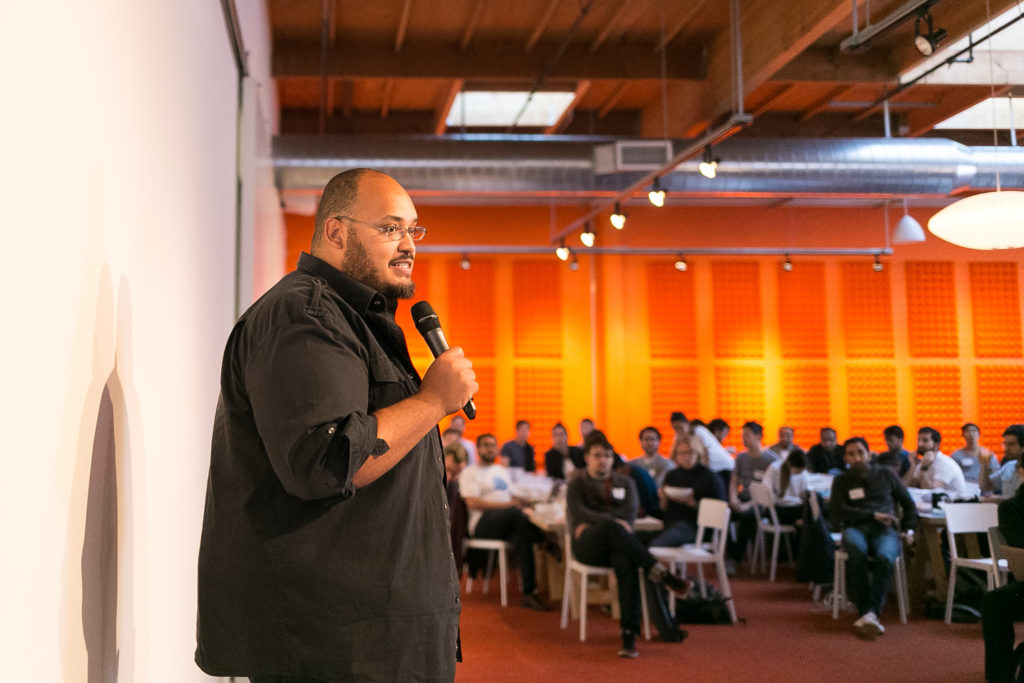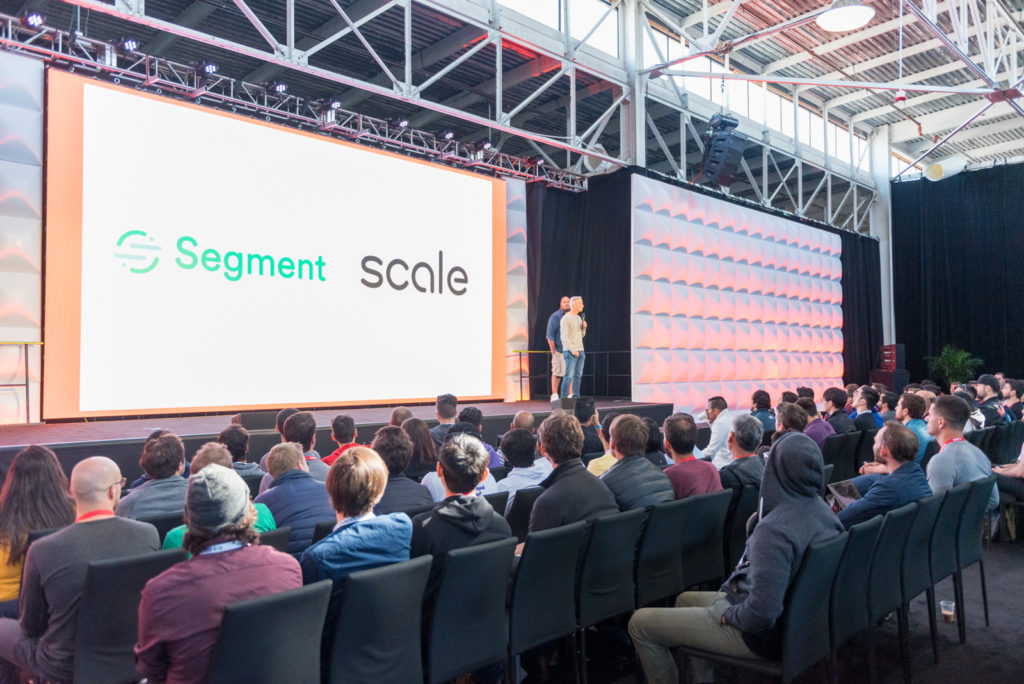If you’re serious about growing your startup and ready to devote yourself to building it full time, joining an accelerator can be a viable next step to expanding your network, accessing investment, and receiving feedback from expert advisors and mentors.
Berkeley has its own ecosystem of accelerators and incubators – you can see a full list of the on-campus resources on BEGIN, and outside of Berkeley, there are hundreds of accelerators and incubators. The first, and perhaps best known accelerator is Y Combinator (YC). YC launched in March 2005 and has since funded over 3,500 companies including Stripe, Airbnb, Cruise, PagerDuty, DoorDash, Coinbase, Instacart, Dropbox, Twitch, and Reddit.
At SCET, we work hard to prepare students for the next step in their entrepreneurial journey. In our newly launched Summer Venture Lab pre-accelerator program, students are able to improve their competitiveness by validating their business idea and growing their network in a hands-on collaborative environment.
In the process of designing this course, we interviewed Y Combinator’s Head of Outreach, Kat Mañalac, to better understand how a program that receives 17,000 applications per year thinks about who to fund. We found her comments very insightful and are sharing a summary below to help students understand how they can be competitive when applying to YC and other accelerators or incubators. While much of the information below is YC-specific, it can also be understood to represent how a competitive startup looks at the acceleration stage, and the benchmark for your own startup when you reach that level.
How does YC compare to other accelerators?
As a quick background, Y Combinator was founded in March 2005 and has, as of August 2022, funded over 3,500 companies that have a combined valuation of close to one trillion dollars. YC hosts two batches per year (Jan-March and June-August), and gives funded companies $500k.
According to Kat, YC is different from other accelerators in three important ways. First, its track record speaks for itself. YC’s portfolio includes 15 public companies, more than 70 unicorns (valuation of $1B+), and over 300 companies with valuations of more than $150 million.
Second, YC has a large, engaged alumni community of more than 6,000 entrepreneurs.

Founders of many of Silicon Valley’s most successful companies are part of the YC alumni network, and if you’re a founder looking for help or advice, it’s always possible to find a YC alum who is at a slightly later stage in your industry who can help answer your questions or share advice. YC itself is now run by YC alumni who are building programs and resources they wish they’d had when they were first getting started.
Third, though YC started as a 3 month program, over the past five years they’ve built resources to help companies as they scale. YC now has a program to help companies hire (workatastartup.com), a program that helps companies as they gear up to raise their Series A, and a Growth Program for later stage companies that are scaling quickly.
What changed during the Pandemic?
When the pandemic started, YC went completely online, and like many other places, YC wasn’t sure how being remote would impact the program.
However, they found that being remote actually worked quite well and there were even some benefits. They could support more international founders and do even more one-on-one office hours with teams. YC’s Demo Day is now hosted online which makes it easier for the best investors from all over the world to participate in the fundraising event.
As of June 2022, YC is back in person but is a remote friendly program. YC starts its batches with a 3-day in-person retreat, hosts weekly founder meetups, and ends the program with live events with alumni. YC interviews, weekly talks from notable speakers, and office hours are still conducted online.
How to write an outstanding YC application
As mentioned above, YC closely reviews 17,000 applications per year to look for companies that are going to have the best chance at success. We were very curious to understand what some of the red flags and green flags that their reviewers look for when reading through startup applications.
Red flags
- Not technical – YC prefers to fund teams that have the technical ability to build what they are proposing.
- Moving slowly – Teams must show significant progress in relation to the amount of time they’ve spent working on their startup. YC does fund companies that apply with only an idea. Founders also need to be working on the startup full time once they’ve been funded by YC.
- Tarpit idea – There’s a category of idea that YC has called the “tarpit idea.” Tarpit ideas are very common ideas that many (hundreds, possibly thousands) of founders have tried but haven’t gotten the idea to work. An example that’s commonly pitched by undergrads is “an app that helps you find out what to do on a Friday night.” If you are working on a very common tarpit idea, it’s important to show that you have new insights and have an understanding of why this idea hasn’t worked in the past.
- Taking too long to launch – Perfection is the enemy of early stage startups. Teams shouldn’t focus too much time on building the perfect product and should instead get a good enough product in front of people quickly. Kat recommends leveraging the Berkeley community to get your first users.
- Not talking to customers – Many teams have theoretical ideas about how they’re going to solve a problem or how users will interact with their product. YC likes to see that founders have an understanding of the problem they’re solving that’s grounded in real conversations they’ve had with users (or potential users).
- Not focusing on the right things – YC doesn’t care about what kind of awards your startup has won. They’d rather you show evidence that you’re building something people want. Focusing on the right things usually means you’re focused on building the product and talking to users.
- Extreme equity splits – YC likes to see equal or close to equal equity splits among co-founders.
Green flags
- Strong team – Because YC funds startups at such an early stage, they put more weight on the founders than on the idea. Having a good, well-thought-out idea is important, but more important is the team – are they technical, is the team well-balanced, are they dedicated to working on this idea, is this the right team for this idea? They like to fund founders who have known each other either professionally or personally for at least 6 months.
- Dedication – Founders are working full time on the idea or will once they get funded by YC. Do we believe this team is going to work on this startup together for the next decade?
- Fast moving – Is the team moving faster than their competitors? Are we impressed by the amount of progress the team has made since they started?
- Clear, succinct storytelling – Stories are key to any startup idea and entrepreneurs should be able to talk about what they’re building clearly and succinctly. The basic elements of a startup story include what you do, who you’re building for, and why.
- Unique insight – Because YC sees so many applications each year, they often see multiple teams tackling the same problem. This allows YC to see when a team has an unusual or unique insight into the space.
- Open-minded and flexible – Having the right mindset is critical. Founders must be open-minded and flexible about their approach. If you’re married to one approach and aren’t listening to what your users are saying, that’s a negative signal.
- Focus – In this stage of the startup journey, entrepreneurs should mostly be focused on two things: building the product and talking to customers or potential customers.
While there is no recipe for entrepreneurial success, hopefully these tips help inform you on how to be a competitive team applying to YC or other accelerator programs.
Thanks to Kat Mañalac for her interview, edits, and contributions to this story.
For more information about Y Combinator and how to apply, visit: https://www.ycombinator.com/apply/
If you’re serious about growing your startup and ready to devote yourself to building it full time, joining an accelerator can be a viable next step to expanding your network, accessing investment, and receiving feedback from expert advisors and mentors.
Berkeley has its own ecosystem of accelerators and incubators – you can see a full list of the on-campus resources on BEGIN, and outside of Berkeley, there are hundreds of accelerators and incubators. The first, and perhaps best known accelerator is Y Combinator (YC). YC launched in March 2005 and has since funded over 3,500 companies including Stripe, Airbnb, Cruise, PagerDuty, DoorDash, Coinbase, Instacart, Dropbox, Twitch, and Reddit.
At SCET, we work hard to prepare students for the next step in their entrepreneurial journey. In our newly launched Summer Venture Lab pre-accelerator program, students are able to improve their competitiveness by validating their business idea and growing their network in a hands-on collaborative environment.
In the process of designing this course, we interviewed Y Combinator’s Head of Outreach, Kat Mañalac, to better understand how a program that receives 17,000 applications per year thinks about who to fund. We found her comments very insightful and are sharing a summary below to help students understand how they can be competitive when applying to YC and other accelerators or incubators. While much of the information below is YC-specific, it can also be understood to represent how a competitive startup looks at the acceleration stage, and the benchmark for your own startup when you reach that level.
How does YC compare to other accelerators?
As a quick background, Y Combinator was founded in March 2005 and has, as of August 2022, funded over 3,500 companies that have a combined valuation of close to one trillion dollars. YC hosts two batches per year (Jan-March and June-August), and gives funded companies $500k.
According to Kat, YC is different from other accelerators in three important ways. First, its track record speaks for itself. YC’s portfolio includes 15 public companies, more than 70 unicorns (valuation of $1B+), and over 300 companies with valuations of more than $150 million.
Second, YC has a large, engaged alumni community of more than 6,000 entrepreneurs.

Founders of many of Silicon Valley’s most successful companies are part of the YC alumni network, and if you’re a founder looking for help or advice, it’s always possible to find a YC alum who is at a slightly later stage in your industry who can help answer your questions or share advice. YC itself is now run by YC alumni who are building programs and resources they wish they’d had when they were first getting started.
Third, though YC started as a 3 month program, over the past five years they’ve built resources to help companies as they scale. YC now has a program to help companies hire (workatastartup.com), a program that helps companies as they gear up to raise their Series A, and a Growth Program for later stage companies that are scaling quickly.
What changed during the Pandemic?
When the pandemic started, YC went completely online, and like many other places, YC wasn’t sure how being remote would impact the program.
However, they found that being remote actually worked quite well and there were even some benefits. They could support more international founders and do even more one-on-one office hours with teams. YC’s Demo Day is now hosted online which makes it easier for the best investors from all over the world to participate in the fundraising event.
As of June 2022, YC is back in person but is a remote friendly program. YC starts its batches with a 3-day in-person retreat, hosts weekly founder meetups, and ends the program with live events with alumni. YC interviews, weekly talks from notable speakers, and office hours are still conducted online.
How to write an outstanding YC application
As mentioned above, YC closely reviews 17,000 applications per year to look for companies that are going to have the best chance at success. We were very curious to understand what some of the red flags and green flags that their reviewers look for when reading through startup applications.
Red flags
- Not technical – YC prefers to fund teams that have the technical ability to build what they are proposing.
- Moving slowly – Teams must show significant progress in relation to the amount of time they’ve spent working on their startup. YC does fund companies that apply with only an idea. Founders also need to be working on the startup full time once they’ve been funded by YC.
- Tarpit idea – There’s a category of idea that YC has called the “tarpit idea.” Tarpit ideas are very common ideas that many (hundreds, possibly thousands) of founders have tried but haven’t gotten the idea to work. An example that’s commonly pitched by undergrads is “an app that helps you find out what to do on a Friday night.” If you are working on a very common tarpit idea, it’s important to show that you have new insights and have an understanding of why this idea hasn’t worked in the past.
- Taking too long to launch – Perfection is the enemy of early stage startups. Teams shouldn’t focus too much time on building the perfect product and should instead get a good enough product in front of people quickly. Kat recommends leveraging the Berkeley community to get your first users.
- Not talking to customers – Many teams have theoretical ideas about how they’re going to solve a problem or how users will interact with their product. YC likes to see that founders have an understanding of the problem they’re solving that’s grounded in real conversations they’ve had with users (or potential users).
- Not focusing on the right things – YC doesn’t care about what kind of awards your startup has won. They’d rather you show evidence that you’re building something people want. Focusing on the right things usually means you’re focused on building the product and talking to users.
- Extreme equity splits – YC likes to see equal or close to equal equity splits among co-founders.
Green flags
- Strong team – Because YC funds startups at such an early stage, they put more weight on the founders than on the idea. Having a good, well-thought-out idea is important, but more important is the team – are they technical, is the team well-balanced, are they dedicated to working on this idea, is this the right team for this idea? They like to fund founders who have known each other either professionally or personally for at least 6 months.
- Dedication – Founders are working full time on the idea or will once they get funded by YC. Do we believe this team is going to work on this startup together for the next decade?
- Fast moving – Is the team moving faster than their competitors? Are we impressed by the amount of progress the team has made since they started?
- Clear, succinct storytelling – Stories are key to any startup idea and entrepreneurs should be able to talk about what they’re building clearly and succinctly. The basic elements of a startup story include what you do, who you’re building for, and why.
- Unique insight – Because YC sees so many applications each year, they often see multiple teams tackling the same problem. This allows YC to see when a team has an unusual or unique insight into the space.
- Open-minded and flexible – Having the right mindset is critical. Founders must be open-minded and flexible about their approach. If you’re married to one approach and aren’t listening to what your users are saying, that’s a negative signal.
- Focus – In this stage of the startup journey, entrepreneurs should mostly be focused on two things: building the product and talking to customers or potential customers.
While there is no recipe for entrepreneurial success, hopefully these tips help inform you on how to be a competitive team applying to YC or other accelerator programs.
Thanks to Kat Mañalac for her interview, edits, and contributions to this story.
For more information about Y Combinator and how to apply, visit: https://www.ycombinator.com/apply/


